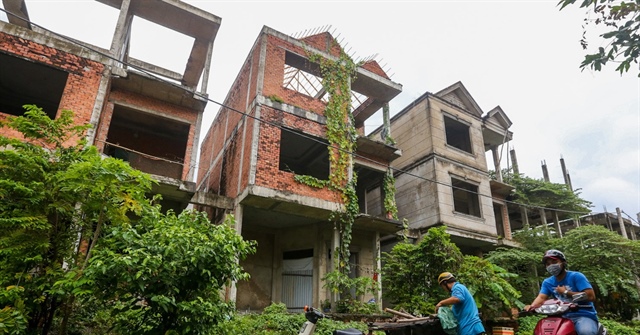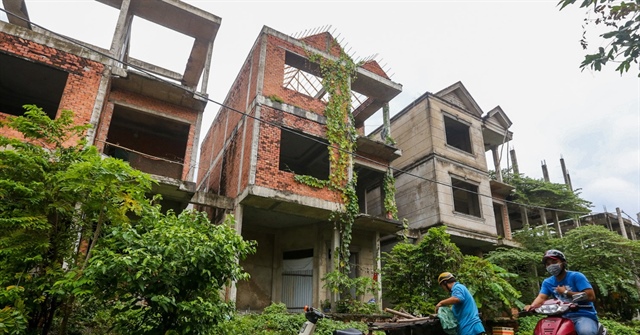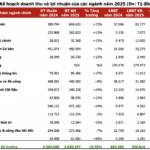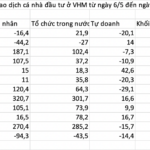The Government Office has just issued Notification 256 conveying the conclusions of Deputy Prime Minister Tran Hong Ha at the meeting on reporting on the real estate market situation.
The notification clearly states that real estate is a crucial link in the economic ecosystem, significantly impacting production chains, capital markets, credit, and labor.
Despite previous directives to完善 the institutional framework and address challenges, the market still faces several limitations, including a shortage of supply, particularly in social housing and affordable housing segments. Additionally, there is a significant gap between housing prices and people’s income. “Price manipulation” and “price gouging” have also occurred, driving land prices to unreasonable heights.
The causes are attributed to policy and legal lag, complex administrative procedures, difficult credit access, delayed resolution of project obstacles, lack of data, and ineffective market regulation tools.
Therefore, the Deputy Prime Minister requested the Ministries of Construction, Finance, Agriculture and Rural Development, and the State Bank to evaluate the entire process of implementing real estate projects, ensuring clear responsibilities for each agency. They should also implement procedures in an electronic environment, ensuring smoothness, transparency, and efficiency.
Provide guidance to local governments on the uniform application of laws, especially the transitional provisions of land, investment, planning, and housing laws.

Deputy Prime Minister Tran Hong Ha instructed to study the imposition of taxes on idle land, real estate projects, and delayed housing development. Photo: X.D |
Develop a real estate trading center
The Deputy Prime Minister requested the Ministry of Construction to urgently build and establish a system of databases and real estate market information so that the State can proactively regulate the market. Study the development of appropriate real estate trading centers.
At the same time, the Ministry of Construction shall take the prime responsibility for coordinating with the Ministry of Finance and other relevant ministries and sectors to integrate investment procedures, approval of basic designs, technical designs, fire protection, etc., into the construction permits to shorten the time for investment and construction.
The Ministry of Construction should promptly study and issue standard design models for social housing, expand the criteria and objects of enjoyment of social housing policies, and the methods of access through renting, rent-to-own, and purchase.
The Ministry of Construction shall take the prime responsibility for coordinating with ministries, branches, and localities to synthesize difficulties and obstacles and propose solutions to report to the Steering Committee and submit them to the Government for consideration and issuance of a resolution to promote the healthy development of the real estate market.
The Ministry of Agriculture and Rural Development was requested to coordinate with the Ministry of Finance to review the land-related regulations, especially administrative procedures, land price appraisal, assigning tasks to public non-business units with conditions to operate as land price consulting units when unable to select land price consulting units, land access, and transitional provisions to submit to the Government a Decree amending and supplementing it in June.
Quickly complete the construction of a land price database down to individual land plots based on value zones and standard land plots, moving towards applying a single land price, as a basis for implementing real estate tax policies, preventing speculation and price gouging.
Study the imposition of real estate and housing taxes
The State Bank was requested to coordinate with the Ministry of Construction, the Ministry of Public Security, and relevant agencies to review and assess non-performing debts related to real estate and housing and propose handling solutions.
Study expanding access to preferential credit for investors and people in implementing social housing policies.
The Ministry of Finance shall take prime responsibility for coordinating with the Ministry of Construction and the State Bank to study the imposition of taxes on idle land, real estate projects, and delayed housing development to avoid overlapping taxes.
Study converting unused commercial housing projects into social housing
The Deputy Prime Minister requested the People’s Committees of provinces and cities to focus on resolving difficulties and obstacles for real estate projects, reviewing and classifying projects with similar obstacles to those specified in Resolution No. 170 of the National Assembly so that when the National Assembly permits the expansion of the scope of application, it can be implemented immediately.
At the same time, prepare a land fund for social housing development alongside the 20% land fund from commercial housing projects; proactively review resettlement housing projects and unused commercial housing projects to propose to competent authorities for permission to convert them into social housing.
MINH TRUC
– 08:45 24/05/2025
What Business Sectors Have the Strongest Growth Plans for 2025?
As of May 20, 2025, listed companies’ earnings reports revealed a promising outlook for the market. According to Agriseco, net profits for the year 2025 exhibited a significant growth of 16.47% compared to 2024. Moreover, excluding the banking group, total revenue plans indicated a remarkable surge of 13.75% year-over-year. These figures showcase the market’s robust health and promising trajectory for the upcoming year.
The Tax Saga: VN-Index Recovers, But Stocks Still Stranded
After almost two months since the market took a hit with the US imposing tariffs on multiple countries, with a significant 46% imposed on Vietnam, the VN-Index has recovered and returned to its previous peak. However, numerous stocks continue to struggle, with the exception of a few standouts from the Vin family.
A Plethora of Policies: Streamlining Social Housing Development and Slashing Red Tape by 70-100%
The proposed resolution by the National Assembly aims to introduce a range of special policies to boost the development of social housing. With a focus on reducing red tape, the resolution seeks to streamline the process of creating much-needed social housing.





















